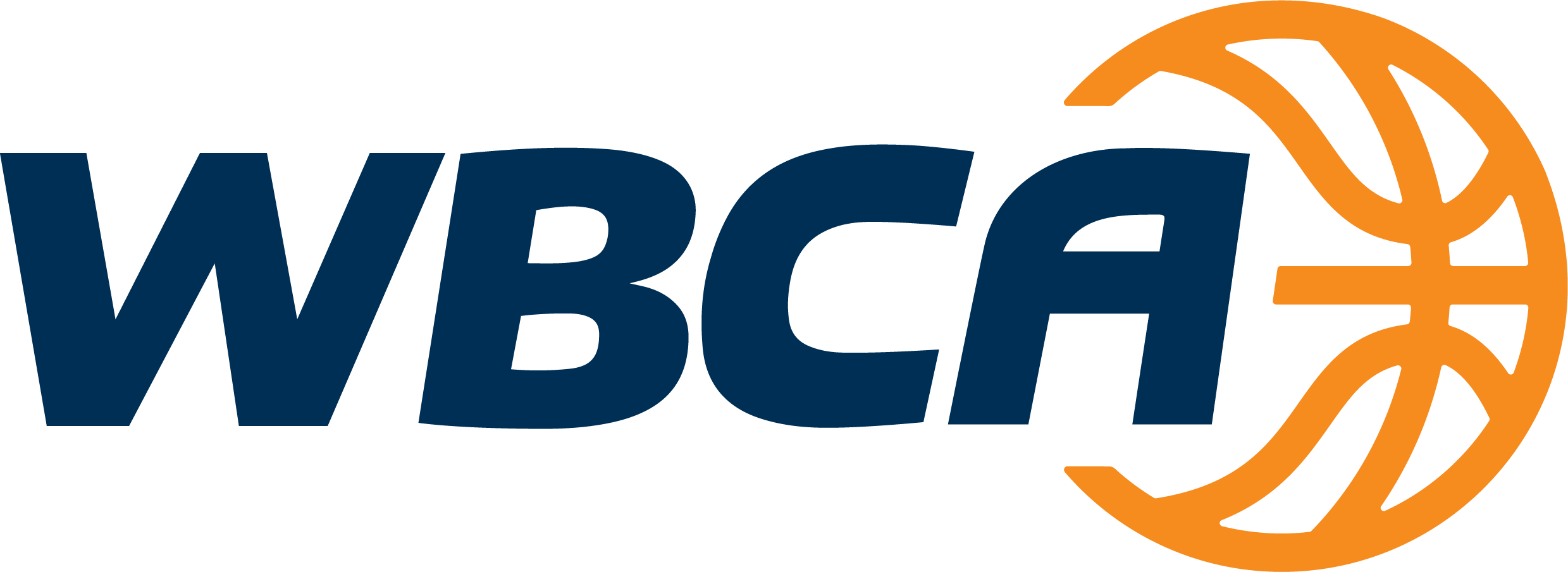ATLANTA (April 16, 2021) — The Women’s Basketball Coaches Association Executive Committee will meet with the NCAA Division I Women’s Basketball Oversight Committee on Monday, April 19, to address inequities between the NCAA’s governance and administration of women’s and men’s versions of the sport.
 The WBCA requested the meeting in an April 6 letter addressed to Lynn Holzman, NCAA vice president of women’s basketball, and committee chairperson Lisa Campos, director of athletics at The University of Texas at San Antonio. It was signed by WBCA Executive Director Danielle Donehew and President Tricia Cullop, head coach at the University of Toledo.
The WBCA requested the meeting in an April 6 letter addressed to Lynn Holzman, NCAA vice president of women’s basketball, and committee chairperson Lisa Campos, director of athletics at The University of Texas at San Antonio. It was signed by WBCA Executive Director Danielle Donehew and President Tricia Cullop, head coach at the University of Toledo.
In the letter, Donehew and Cullop stated their desire to discuss with the committee:
(1) The differences in conditions experienced by teams participating in the Division I Women’s Basketball Championship in San Antonio and those participating in the Men’s Championship in Indianapolis; and
(2) The systemic inequities that exist in the NCAA’s organizational structure, governance and administration of women’s and men’s basketball.
This will be the first joint meeting of the two committees since social media posts by student-athletes on participating teams arriving in the two cities on March 18 brought to light differences in conditions at the women’s and men’s championships. In response to the controversy, NCAA President Mark Emmert on March 25 announced that the NCAA had retained the law firm of Kaplan Hecker & Fink LLP to conduct an external equity review of all NCAA championships. On that same day the WBCA sent a letter to Emmert informing him that the association’s leadership considered the external review he announced insufficient and calling for a truly independent inquiry conducted by a “Commission on Gender Inequity in College Sports” composed of persons upon whom the WBCA and NCAA agree. Emmert responded in a March 31 letter informing the WBCA that the NCAA would move forward with its external review.
“This meeting is the first of what we hope are a series of meetings between the WBCA leadership and the Women’s Basketball Oversight Committee as the two associations work in partnership to ensure the external equity review being conducted by the Kaplan Hecker and Fink firm is transparent and appropriately thorough in scope,” said Donehew. “The two issues we identified as items we wish to discuss on Monday are the immediate concerns we have that result from the inequities experienced during the recently completed women’s and men’s championships. We will be raising other issues with the Oversight Committee as the Kaplan firm review progresses.”
Donehew said the WBCA also will discuss with the Oversight Committee a trio of documents prepared for or by the NCAA over the past 15 years that address similar issues in college women’s basketball — the 2013 NCAA Division I Women’s Basketball White Paper written by Big East Commissioner Val Ackerman, a 2013-14 NCAA Division I Women’s Basketball Action Plan, and a report from a 2006 NCAA Division I Women’s Basketball Discussion Group.
“These issues are nothing new to our sport,” said Donehew. “They’ve been discussed, studied and addressed in theory and on paper multiple times for well over a decade. Now it is time to take action.”
The NCAA Division I Women’s Basketball Oversight Committee is the body charged with ensuring that appropriate oversight of women’s basketball is maintained, enhancing the development and public perception of the sport, and making recommendations related to regular-season and postseason competition.
The WBCA Executive Committee acts on behalf of the WBCA Board of Directors when it is not in session and provides oversight, advice and guidance to the executive director and staff in the day-to-day operation of the coaches association.
About the WBCA
Founded in 1981, the Women's Basketball Coaches Association is the professional association for coaches of women's and girls' basketball at all levels of competition. The WBCA offers educational resources that coaches need to help make themselves better leaders, teachers and mentors to their players; provides opportunities for coaches to connect with peers in the profession; serves as the unifying voice of a diverse community of coaches to the organizations that control the game; and celebrates those coaches, players and other individuals who excel each year and contribute to the advancement of the sport. Visit WBCA.org for more details about the association.
# # #

